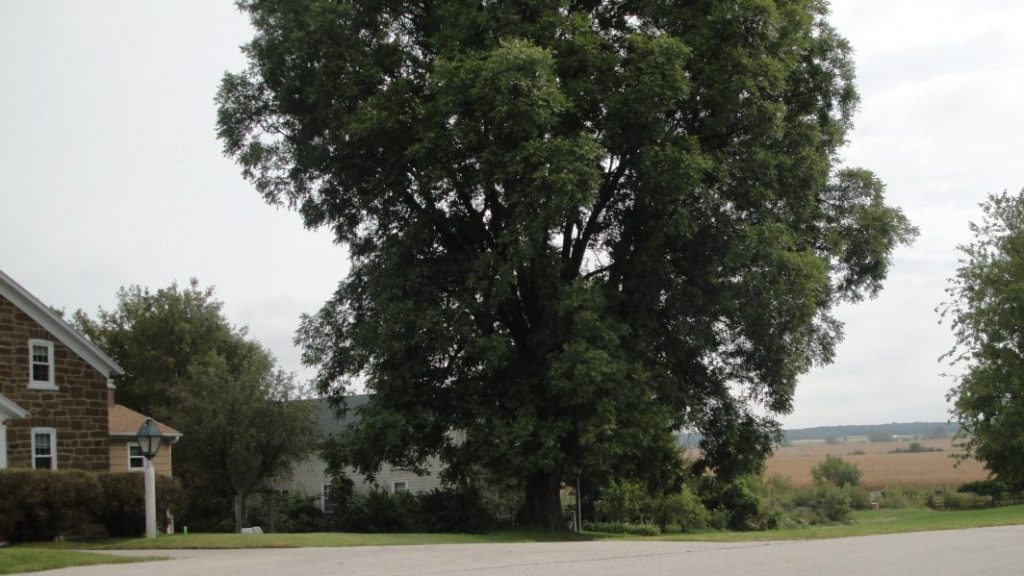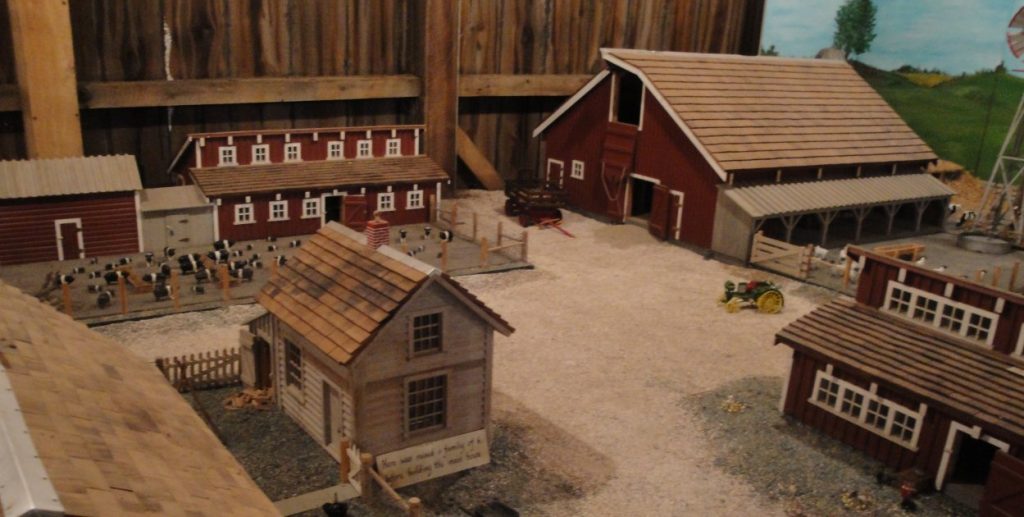
I was vaguely aware of the Amana Colonies, but the name was familiar mostly because of Amana appliances. In fact, as I write this in the Holiday Inn in Dodge City, the air condition is an Amana product. But there is much more to the story than stoves and refrigerators.
There are seven Amana colonies in Iowa. They were founded in the 1840s by a German sect. They were related to Lutherans, but had a more communal point of view. It is the usual story. They were persecuted in Europe, so they came to set up a new life in America. Below is a model of one of the farms. There is a “barn museum”. It has models of all sorts of local buildings. They were all made by a single local guy with a lot of time and significant model making skills.

These kinds of colonies were successful in the U.S. because the adherents believed in hard work and were well disciplined. That is pretty much all it takes to be successful in America. The thing I like about the German-culture sects is that they have very well organized agricultural operations and they don’t shun beer. Beer is a integral part of central European culture. IMO, it is an integral part of pleasant civilization, but that is another story.
The Amana colonies were integrated agricultural enterprises. They are not like the Amish. The Amana folks embrace technologies and machinery. Farms were communal until 1932, when they all got shares in an Amana corporation. They farmed, processed farm products, made crafts and later on even made appliances. The Amana Corporation, which is still in existence, still runs a prosperous enterprise. I was interested in that they own and manage a large – 7000 acre – forest reserve. It produces forest products and is run sustainably. The hardwoods from the forest supply the wood for their furniture making businesses. A guy I talked to told me that they do TOO good a job with wildlife. He cautioned me to be careful driving around because the deer would be jumping over the road, especially at dusk.
Beer drinking, hard working, not complaining and forest loving – I like these people.
As you drive around in the American countryside, you realize how many of these sorts of groups there were – and still are – in America. We tend to forget about them or think they are just historical artifacts. But they seem to have developed sustainable systems, both in the natural and the human ecology. We talk about diversity in America. This is actually a very important part of it.
